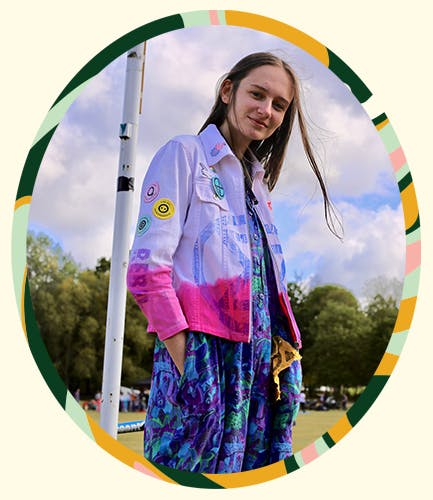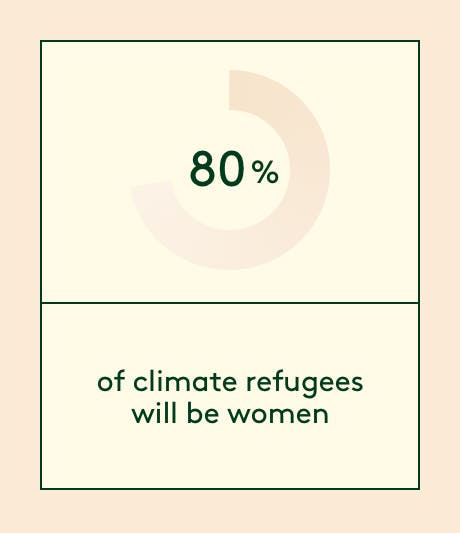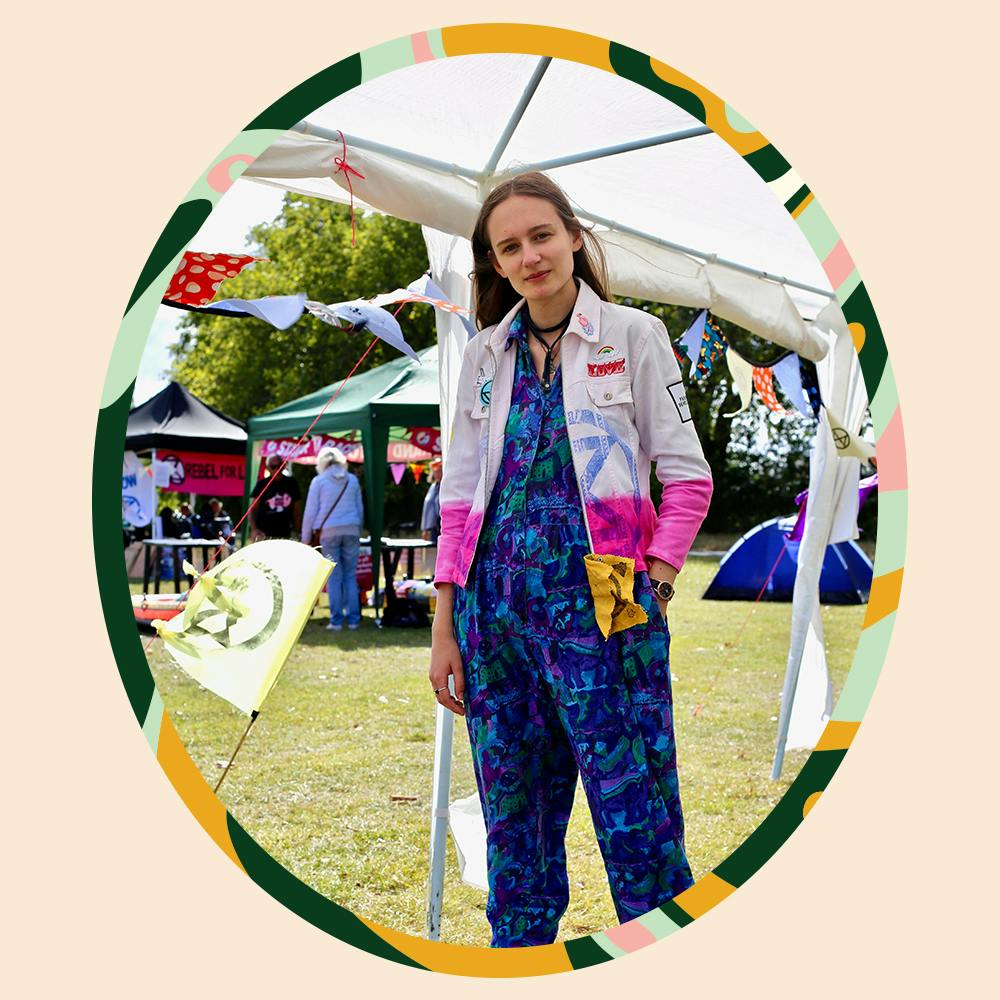You’d be forgiven for thinking a fashion blogger called Tolly Dolly Posh was all sunshine and rainbows. But that would be judging a book by its cover—or, at least, its Instagram handle.
The day we met Tolly Dolly (full name Tolmeia Gregory) she was just about to give a talk on sustainable fashion in Downhills Park for Extinction Rebellion, the global movement which champions civil disobedience and nonviolent resistance to get governments to listen up about climate change. A few weeks later, Tolly would take part in a "funeral" procession—complete with head-to-toe black and coffins labelled "our future"—to protest at London Fashion Week. What was that about sunshine and rainbows?
Tolly is a fashion blogger in a world where fashion—at least as we know it—doesn’t make sense. She launched her blog at age 12 and grew up wanting to be a designer, but the awareness of the global climate crisis made that dream problematic.
Rather than bidding goodbye to fashion, Tolly decided to get on the inside—and then change it. Today she uses her platform to advocate for better practices (like buying second hand) and championing ethical brands (she has an ethical directory on her website).
She’s wary of “conscious” collections from big-name brands and encourages her followers to be rigorous when it comes to making choices as consumers.
Acting as a spokesperson for a crisis with such a bleak outlook does, understandably, take its toll. In the face of what can seem hopeless, however, Tolly believes the only choice is to act.

You’ve been blogging since you were 12 years old—how has that shaped the way that you approach the concept of community?
In the very early years of blogging, I was much more immersed in the “blogosphere” and the community that was growing in the UK, especially with fellow teen bloggers at the time. It was very supportive and uplifting, at least from the people I was interacting with.
However, I’d say my understanding of a community has shifted entirely since joining Extinction Rebellion both online and offline. It’s an incredible feeling to know that there are so many like-minded and passionate people who are willing to support you in whatever way they can. I’ve never experienced anything like it before.
Did you have a lightbulb moment which caused you to start talking out against the fashion industry?
My lightbulb moment happened in the aftermath of the Rana Plaza garment factory collapse in 2013 and my subsequent viewing of The True Cost documentary. Being so young at the time, I’d had no idea of the impact of the fashion industry before that so it was a complete eye-opener and I knew I could no longer continue to use my online platforms in the same way I had been.
What effect is climate change having on young people’s mental health?
It’s huge because it’s such a new problem we’re having to face. We’re dealing with what is inevitably going to happen to us, not what is happening to us currently (at least not in the UK—in other parts of the world, the climate crisis is a terrifying reality), so it’s like having the weight of the entire world and its future on your shoulders.
It’s also happening to students and young people already struggling to cope with “ordinary” stresses such as exams, peer pressure, puberty etc. Normally, young people are worried about what they’re going to do with their futures in terms of job prospects; now we’re worrying about whether we’ll even have time to find jobs.
“
It’s like having the weight of the entire world and its future on your shoulders.
Do you find it difficult to stay positive about the future?
Absolutely. It’s incredibly difficult, especially when your focus is on educating and raising awareness for other people. I’m constantly switched onto what’s happening. A turning point for me was acceptance and realising that although I do feel entirely hopeless, it doesn’t mean I just stop here. It means I need to make the most of the time we do have left, both in enjoying my life and the world we live in and using my voice and doing what I can to make as much positive change as possible.
If you had to imagine utopia, what would it look like?
We would live our lives connected to our local communities; we’d grow our own food and work with nature. We’d go back to basics and realise that the way we’re living (in the western world, especially) is a selfish way of living.
If you could have 30 seconds in front of the Prime Minister, what would you say to them?
If it’s Boris Johnson—I probably wouldn’t waste my energy, in all honesty.
What does conscious consumerism mean to you?
It means considering everything we bring into our lives very carefully. Especially when it comes to clothes, it’s about asking yourself whether you truly need something or if you can find another way of sourcing it. It’s definitely not the be-all and end-all of sustainability, though.
If somebody is telling you that the best thing you can do for the planet is becoming a “conscious consumer”, you should probably think about why they’re saying that—for example, are they still promoting consumption at the same rate but with “eco” products?
How do you tell if brands are really employing sustainable practices or just “greenwashing” products?
I look for certifications, statements on sustainable commitments and for clues on how committed they truly are, and then I ask questions. And if those questions aren’t answered or the answers are incredibly hard to find, then, that’s usually quite a strong indicator.
Also, with fast-fashion; it doesn’t matter how many “conscious collections” a brand releases if they’re still selling millions of garments per year. Being sustainable means slowing down and reducing the number of products being manufactured and sold.

How are sustainability and feminism linked for you?
They go hand-in-hand. The UN indicated that 80% of climate refugees will be women. Women living in poverty will also struggle more, especially those in countries within the Global South where conditions are already becoming drier, meaning it’s becoming increasingly harder to find food and water for their families.
We see health as having three pillars—physical, mental, soulful. What are some things that you do to nurture each/any of these?
In the past year or so, I’ve taken up yoga. I don’t do it too often but when I do it’s beneficial to both my mind and body plus I like that I can implement what I learn into other parts of my life—like conscious breathing when I’m in stressful situations such as on a protest.






